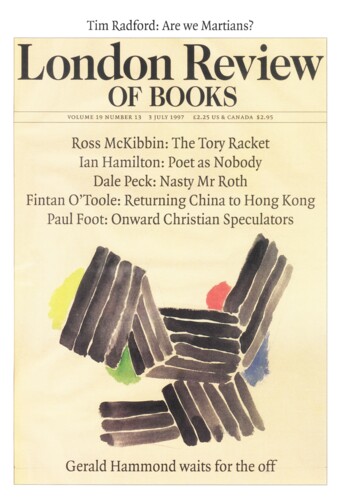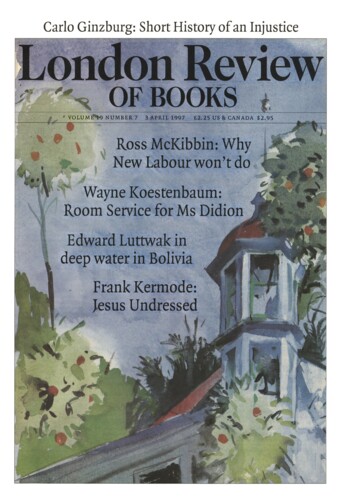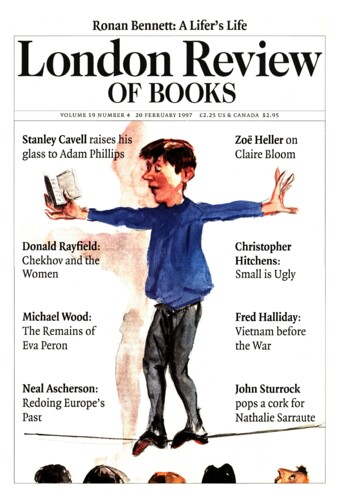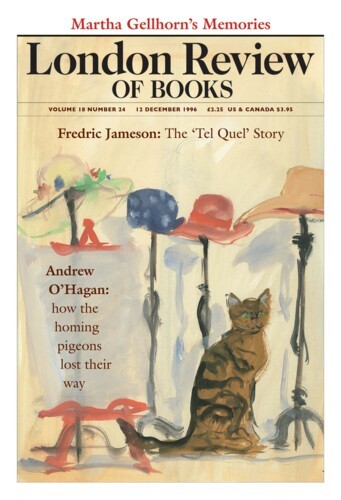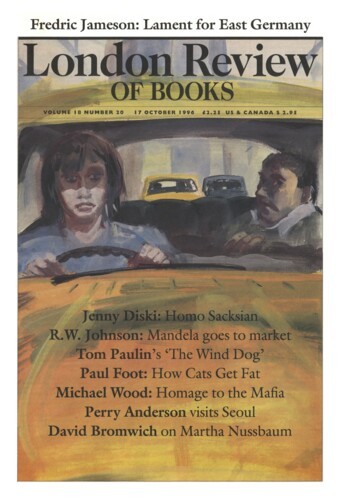The market taketh away
Paul Foot, 3 July 1997
The Church of England has always been run by wealthy people, who could never understand why pressure was exerted on them from below to control the Church’s wealth or, worse, to share it out among the poorer clergy. But the contradiction between the Church’s gospel and its behaviour eventually became too much even for Parliament. A law of 1840 created a body of 95 Ecclesiastical Commissioners and gave it the power to distribute the revenues of the cathedrals and bishops where the clergy needed it most. This organisation very soon started to show signs of the malaise it was set up to cure. One man, Charles Knight Murray, assumed great power over the Church estates, but forgot to tell the Commissioners that he was a director of the London, Chatham and Dover Railway and an eager speculator in railway shares. To pay for his prodigious share purchases, he intercepted and converted for his own use Church money drafts to the value of nearly a quarter of a million pounds in today’s money. In 1849, he was found out. He pleaded with some justification that his speculative abilities had produced a lot of money for the Church and he was not prosecuted. But for the next hundred years Church investments were kept well away from speculative adventures. The property the Church now bought was, in the main, low-rent housing in the inner cities, where it gained a reputation as a benevolent landlord.
